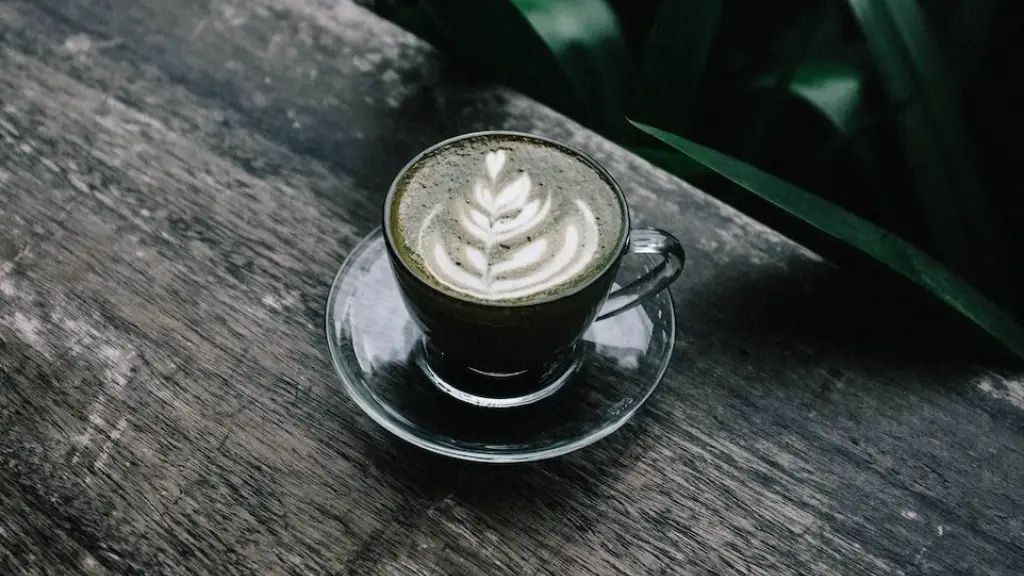How Long After Drinking Coffee Can I Take Iron
Iron supplements can play a crucial role in keeping our body’s iron supply in a healthy range, but for those who also need their morning caffeine boost, the question becomes: How long should I wait to take my iron supplement after drinking coffee?
Caffeine from coffee can affect the absorption of iron, so drinking it too close to the time when an iron supplement is ingested can decrease its efficacy. According to leading health and nutrition website Healthline, it is ideal to wait at least 1 hour after drinking caffeine, including coffee, before taking one’s iron supplement.
The lowering or hindering of iron absorption caused by caffeine typically takes place when the iron supplement and caffeine are taken at the same time or within 45 minutes of one another. The good news is that iron is often stored in the body, so those who wait to take their supplement an hour after drinking coffee can still enjoy their favorite beverage and maximize their iron supplement’s efficacy.
In addition to coffee, health experts suggest avoiding other types of caffeinated beverages before taking an iron supplement. These include tea, carbonated beverages and energy drinks, as all of them can have an impairment effect on the supplement’s efficacy.
According to Nutritionforlife, ingesting caffeine can also affect those with anemia, which is a condition that can lead to the lack of iron in the body. This happens because caffeine is known to increase the production of gastric acid, which in turn can reduce the pH level in the stomach and interfere with the absorption of iron.
Moreover, as Nutritionforlife also states that it is also important to note that dairy products can also interfere with iron absorption. Therefore, it is recommended to wait an hour to 2 hours after drinking coffee or other caffeinated beverages before taking an iron supplement to minimize the chance of any interference.
Foods Rich in Iron
When it comes to increasing iron intake, it is important to incorporate foods that are rich in this mineral into one’s regular diet. According to the American Society of Hematology (ASH), some of the best dietary sources of iron include:
- Lean meat, pork, poultry and fish
- Beans and legumes
- Nuts and seeds
- Whole grain and enriched bread, cereal, and rice
- Dark leafy vegetables such as spinach and kale
- Dried fruits like apricots, prunes and raisins
Including these in one’s diet can help maintain a healthy level of iron in the body and help those who are taking iron supplements to maximize the efficacy of the supplemental dosage.
Vitamin C And Iron
Consuming foods rich in Vitamin C alongside iron-rich foods can further help boost the body’s absorption of iron as Vitamin C facilitates the incorporation of iron into the body’s red blood cells. Foods rich in Vitamin C include citrus fruits like oranges and limes, broccoli, peppers, tomatoes, and papayas.
By drinking fluids rich in Vitamin C after eating an iron-rich meal can increase the degree by which the body can absorb iron by 40% according to Nutritionforlife.
Getting one’s iron levels in a balanced and healthy range is an important part of overall nutrition. Making sure to time one’s coffee or other caffeinated drinks with iron supplements or iron-rich foods can help make sure one’s body gets the most out of dietary or supplemental iron consumption.
Iron Overdose
One must also be sure to check the label of iron supplements for recommended doses and adhere to it, as taking an overdose of iron can cause some negative side effects. According to Healthline, an overdose of iron can lead to constipation, an unpleasant taste in the mouth, nausea, vomiting, reduced appetite, fainting, dizziness and abdominal pain.
Taking too much iron can also cause toxicity leading to liver and heart problems, respiratory failure, coma, and even death in severe cases. This can be avoided by taking the recommended dose as indicated by the manufacturer on the iron supplement’s label and by consulting a doctor.
Iron Supplement Dosage
The dosage of iron supplements needed by each individual depends on the person’s age and the levels of iron in the body, as indicated by the results of a blood test.
The National Institutes of Health (NIH) generally recommends 11 milligrams of iron for adult men and women under the age of 50, and 8 milligrams for adult men and women over the age of 50, respectively.
Children under the age of 18 and pregnant women require higher amounts varying between 8 to 27 milligrams per day. One should consult with a doctor or a nutritionist to determine the right dosage needed to maintain healthy iron levels.
Tea And Iron
One may also want to consider switching their morning cup of coffee to tea from time to time. Tea contains tannins, a nutritional component that has an antioxidant and anti-inflammatory effect in the body. This can be beneficial for those who are taking iron supplements as tannins can improve the body’s ability to absorb iron, even when consumed at the same time as the supplement.
In addition, for those who want to experience the uplifting effects of caffeine without consuming too much of it, green tea is a great alternative that has yet to experienced the same impeding effects of black tea. This is because green tea is lower in tannins than black tea and is not processed as much, which makes it a healthier option.
Finally, the best way to ensure the body is getting the right amount of iron safely is by consuming foods and beverages that are rich in iron and vitamin C while also taking the recommended dose of iron supplements.
Organic Options
Consumers can also opt for organic iron supplements as it is free of preservatives, artificial colors and flavors and created with organic plant-based materials. In addition, organic iron supplements are vegan-friendly, gluten-free, and non-GMO.
Furthermore, organic products are not exposed to potentially harmful chemicals that can frequently interfere with the other essential minerals and vitamins that help the body absorb the necessary dose of iron. Organic products are also easy to digest and help to restore the body’s natural balance.
Organic supplement manufacturers also craft their products using natural herbs, vitamins, and minerals that work together with iron supplements to restore proper balance and health in the body.
In conclusion, making informed decisions regarding when to take one’s iron supplement in regards to when they drink coffee or any caffeinated beverage is important. Drinking plenty of fluids to replace what was lost while consuming caffeine and eating foods rich in iron and Vitamin C can also increase the efficacy of the supplement.





